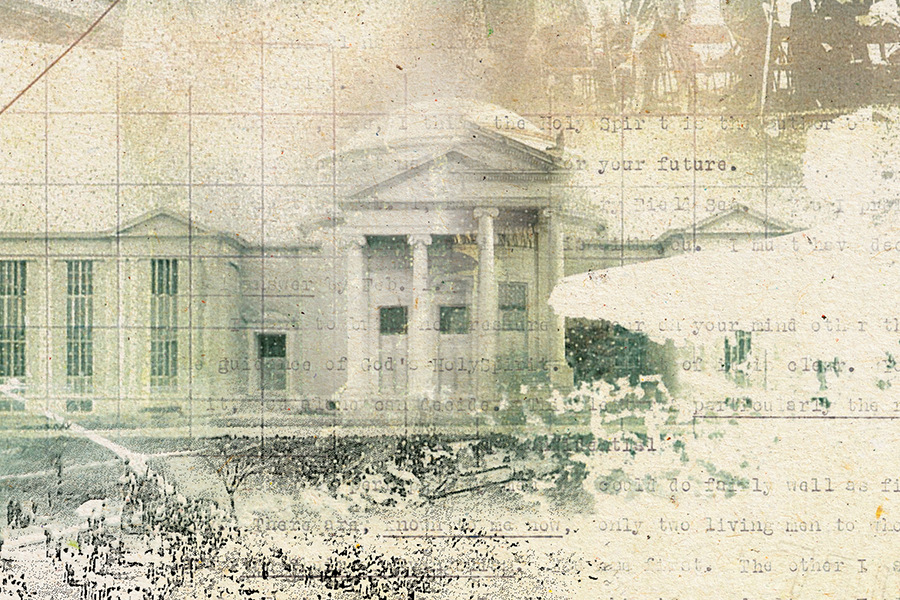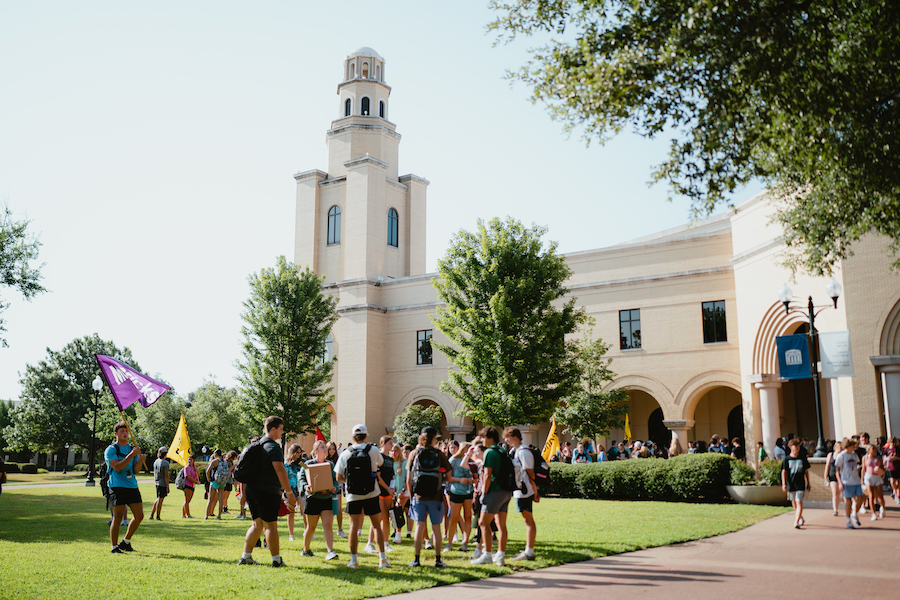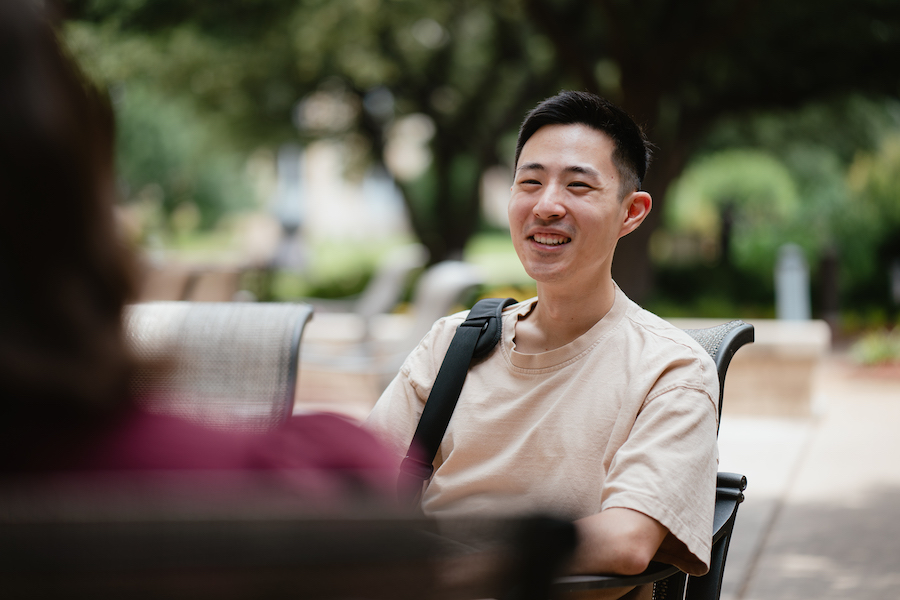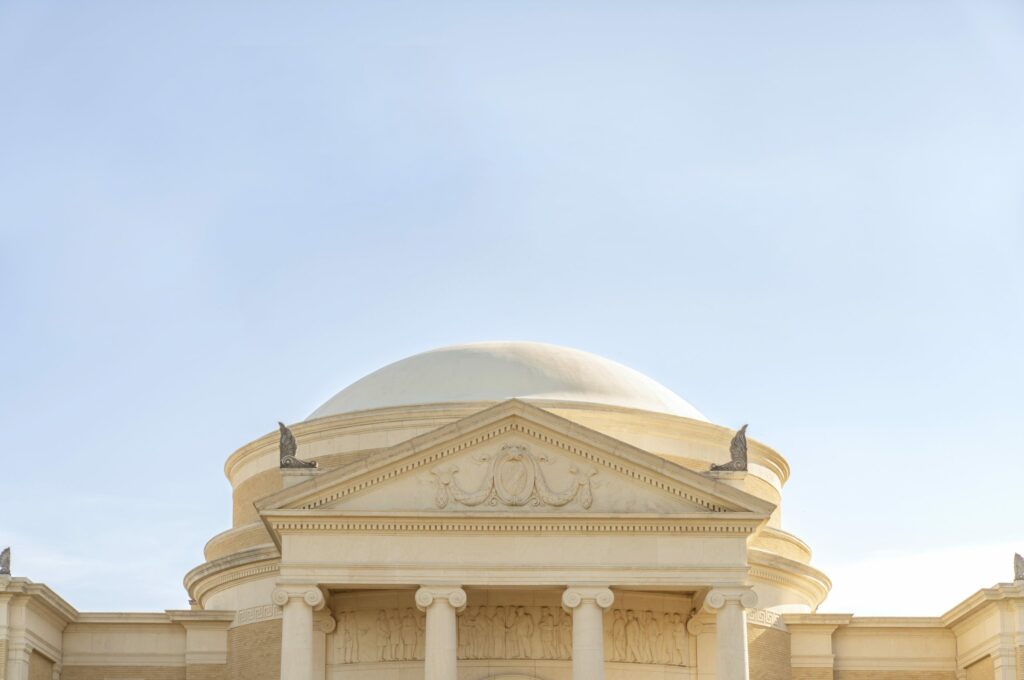A Great Commission and Great Commandment vision for theological education at Southwestern

Editor’s note: This article originally appeared in the Fall 2023 issue of Southwestern News.
In 2000, I surrendered to the call to vocational ministry. As a 20-year-old, I did not know exactly what that meant other than I knew God had a plan for me and I wanted to serve Him in and with the local church. Theological education was core to that decision. I was attending Mississippi College and switched to a major in Christian studies. I found a position at a local church where I could intern. This was an exceptionally formative time in my life. I learned about ministry both academically and practically, yet knew I needed more equipping. Every mentor in my life at that time— family, professors, and church—mentioned I needed to go to seminary to complete my education.
Going to seminary was an easy decision to make; what was difficult was where to go. There were a few excellent options close to my home, but I wanted to make sure that the education I would receive would be one that would not just train my mind but would prepare me for the work of ministry. In 2001, I traveled to Fort Worth, Texas, with the thought of potentially leaving behind family, friends, and the church I served and loved dearly. What I discovered on Seminary Hill was a place that could train me academically and professionally, a place that was good for my mind as well as my soul. I decided at that time Southwestern Seminary is where I needed to be.
Twenty-two years have passed since that initial visit. Much has changed. The seminary is different. We have gone from three schools to five including Texas Baptist College, our undergraduate program. Theological and higher education is different; for example, online education is now a significant percentage of our student population, while it barely existed when I began seminary. The world has changed tremendously and with it the concerns of ministry and missions. Theological education in the twenty-first century requires different approaches than my grandparents received; indeed, the needs today are different than only one generation ago. What remains unchanged, however, is that Southwestern Seminary is committed to equipping our students into the God-called ministry that they will be entering for the Kingdom. We still teach the Bible, theology, preaching, and pastoral ministry. We still equip ministers in music ministry, children ministry, student ministry, counseling, and family ministries, to name a few. We are ever concerned with reaching the lost and equipping every Southwesterner in missions and evangelism, although we now do it with the contemporary challenges in mind. We still exist to assist churches by training church missions leaders for Gospel service.
The historic nature of Southwestern Seminary is seen in how we have been committed to living out the Great Commandment and the Great Commission throughout our 115 years of ministry. This is clearly articulated in our recently restated mission:
The primary mission of Southwestern Baptist Theological Seminary is to glorify God by providing theological education for individuals engaging in Christian service, assisting Southern Baptist Convention churches by biblically educating and equipping Christian men and women for ministry which encourages the priority of the Great Commandment and the fulfillment the Great Commission.
And to do so with our vision:
Through theological education, Southwestern Baptist Theological Seminary will seek to equip servants for the church to influence Texas, the region, the nation, and the world for the cause of Christ and the Kingdom of God.
These are the things that we do because this is who we are. In fact, we have crafted an identity statement to clarify:
In keeping with its heritage as a Great Commandment and Great Commission institution, Southwestern Baptist Theological Seminary guides and equips students in living their calling, seeking to glorify God through Christ-centered education that encourages academic excellence and faithful ministry preparation.
As I ponder the future of Southwestern Seminary and Texas Baptist College, it is no less than these statements and the dual commandments they embody that drive my vision for theological education on Seminary Hill. Our commitment both inside and outside of the classroom is to keep these two biblical mandates ever before us. We recognize that student formation for Gospel ministry is our goal and our curriculum in the classroom must be as academically rigorous as it is practically effective. We are committed to ensuring that our students are effective in both local church ministry and global missions. The essence of the Great Commission is to go forth into all nations teaching all that Jesus commanded. We want to ensure that any student’s call to the uttermost is buttressed by intellectual and practical training that ensures effectiveness for Kingdom work as they fulfill the Great Commission.
We also are concerned with how every member of the Southwestern community is being formed and conformed to the image of Christ. The Great Commandment calls us to love both God and neighbor with all that we are. Our desire is for Southwesterners to go forth into ministry with not only head knowledge about the Bible and theology, but with hearts that are broken for the lost as well as passionate for true discipleship in this broken world. How we love the people to whom we are ministering is just as important as how well we engage in the everyday tasks of ministry. The hidden curriculum at Southwestern and Texas Baptist College, outside of the classroom, is shaped to not only help Southwestern become a place of integrity, trust, and flourishing, but also to cultivate our students so that they are equipped to lead in ministry in a like manner.
The dual task of fulfilling the Great Commission and living the Great Commandment is supported by our six core values that are central to our engagement inside and outside of the classroom. We are an institution that is Grace Filled, Christ Centered, Biblically Grounded, Confessionally Guided, Student Focused, and Globally Engaged. Our unapologetic commitment to Christ and His churches as well as Baptist theological identity guides us as we focus on the students entrusted to us to send back out to engage the world.
As Southwestern Seminary and Texas Baptist College engages in its task to assist churches of the Southern Baptist Convention, we do so with the commitment to touch hearts and minds. The intersecting point between academics and practical ministry preparation has been key to Southwestern since B.H. Carroll helped found the school in 1908. It continues to be the heart of our school as we equip ministers to be effective in the twenty-first century. Vocationally this means a heightened focus upon both full- and part-time ministries that local churches and missionaries need today. The biblical, theological, evangelistic, and missiological impulse of Southwestern’s history is being focused in on the needs of ministry in the world today.
As I begin this new role of leading the academic division of this Southwestern Seminary and Texas Baptist College, an institution that has shaped and formed me, I stand on the shoulders of leaders like B.H. Carroll, W.T. Conner, Leo Garrett, and others who knew the need to equip ministers of the Gospel. It is my desire for Southwestern to be renewed as the place that equips God-called women and men to be trained for ministries in the local church and on the mission field. As Robert Naylor claimed years ago, “The sun never sets on Southwestern.” This is because the historic mission and vision of the school on Seminary Hill remains. Our graduates have gone out into the entire world making disciples and we are not going to back off from that great effort today. Our focus is clear, we are and will be devoted to equipping future leaders to do the work of ministry, making disciples, and reaching the lost.
W. Madison Grace II (‘06,’12) serves as the provost and vice president for academic administration and dean of the School of Theology.



